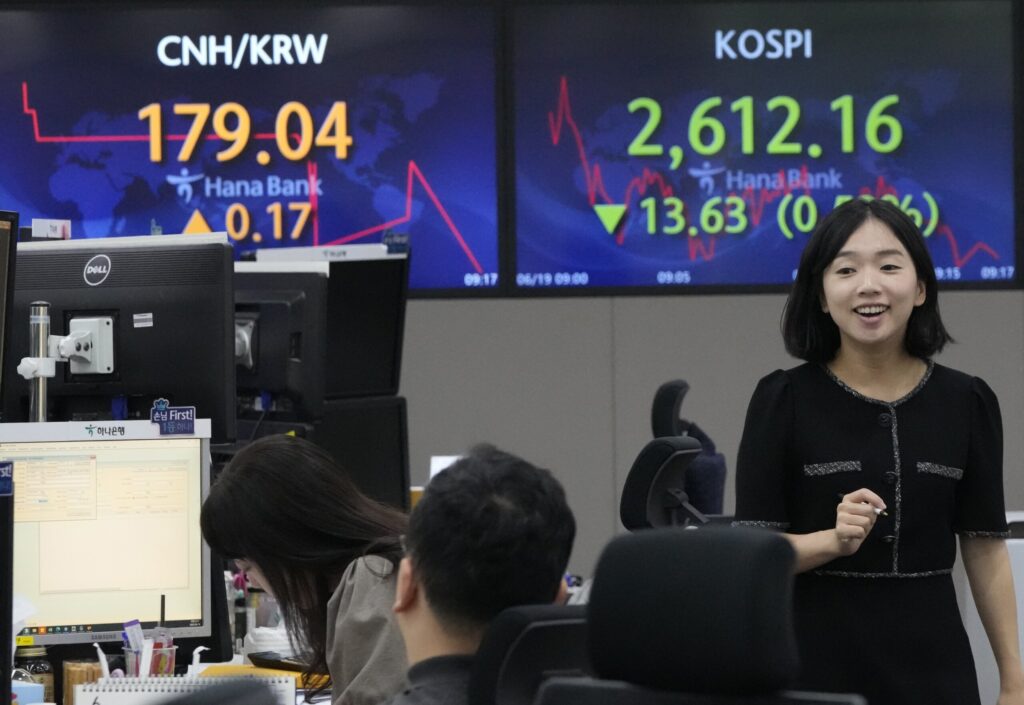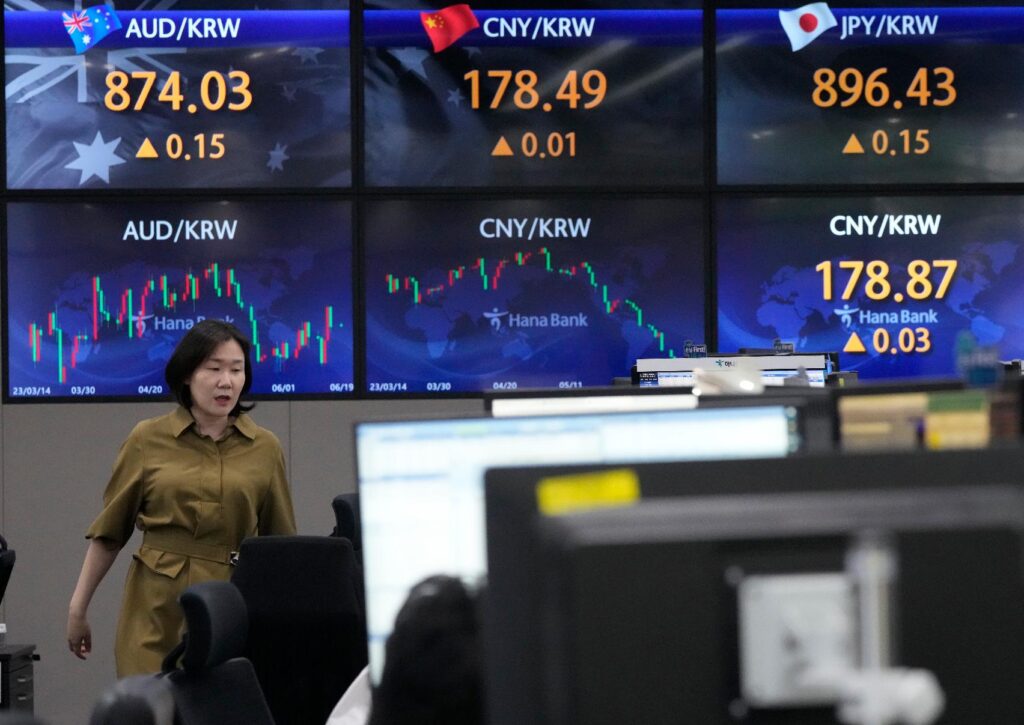Asian stock markets experienced a decline on Monday, following the downward trend set by Wall Street, after the top US and Chinese diplomats agreed to collaborate in a meeting held during a time of conflict over various issues.
The stock markets in Shanghai, Tokyo, Hong Kong, and Seoul all retreated, while Sydney saw a gain. Oil prices also dropped by nearly $1.
On Friday, Wall Street’s benchmark S&P 500 index fell by 0.4% after the Federal Reserve announced that it would maintain its benchmark lending rate for now, but cautioned that it could potentially be raised later if necessary to address inflation.
Over the weekend, Secretary of State Antony Blinken and Chinese Foreign Minister Qin Gang held talks that the Chinese government described as “candid, in-depth, and constructive.” This comes at a time when relations between the US and China are at their lowest point in decades. While there was an indication of a willingness to cooperate on major issues, there was no progress made on disputes regarding Taiwan, human rights, technology, and security.

Yeap Jun Rong of IG stated in a report, “Whether that will lead to any actual positive outcomes still awaits to be seen. Any inaction on that front could still see any optimism fizzle out eventually.”
Several Asian markets recorded losses, with the Shanghai Composite Index falling by 0.3% to 3,262.59 and the Nikkei 225 in Tokyo shedding 0.3% to 33,591.82. The Hang Seng in Hong Kong also declined by 0.6% to 19,915.51.
The Kospi in Seoul experienced a retreat of 0.8% to 2,605.46, while Sydney’s S&P-ASX 200 gained 0.4% to 7,277.70. New Zealand, Singapore, Jakarta, and Bangkok also saw declines.
On Friday, the S&P 500 closed at 4,409.59, marking a fifth consecutive weekly gain. It is currently near a 14-month high due to a 15% increase this year.
The Dow Jones Industrial Average slipped by 0.3% to 34,299.12, and the Nasdaq composite fell by 0.7% to 13,689.57.

Humana experienced a significant loss of 3.9% in the S&P 500 after becoming the latest health insurer to warn about rising costs due to pent-up demand for medical services. UnitedHealth, a major health insurance provider, had previously issued a similar warning.
Last week, the Federal Reserve decided to keep its benchmark lending rate steady for the first time in 10 consecutive monthly meetings without announcing an increase.
However, the Fed issued a warning that it may raise rates as many as two more times this year. Wall Street is anticipating a rate hike at the next meeting scheduled for July 25-26.
A survey released on Friday indicated that US consumers are also lowering their expectations for future inflation. The preliminary reading from the University of Michigan survey also suggested that consumer sentiment is strengthening more than originally anticipated.
Chemical company Cabot saw a decline of 8.1% after announcing that soft demand globally, particularly in China, will negatively impact its profits this year.
On a positive note, software maker Adobe saw a 0.9% increase following the release of solid financial results and an upward revision of its profit forecast.
